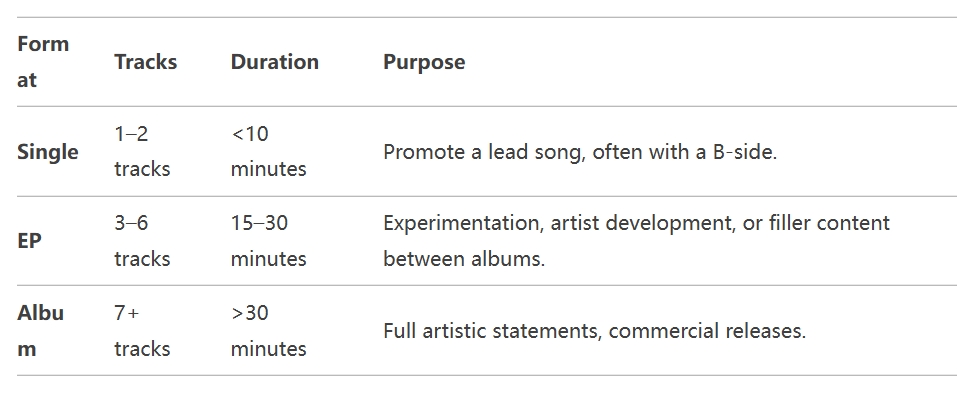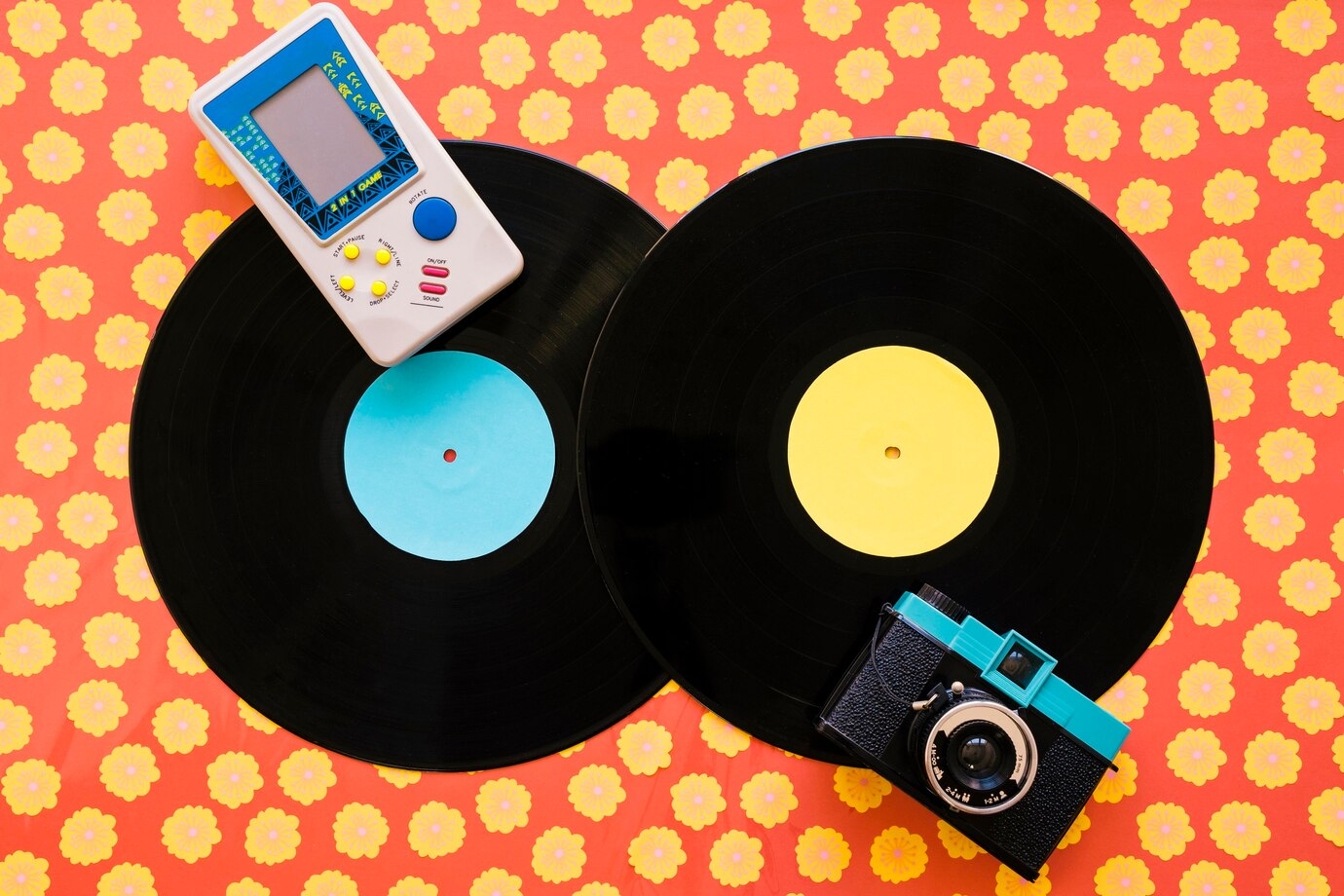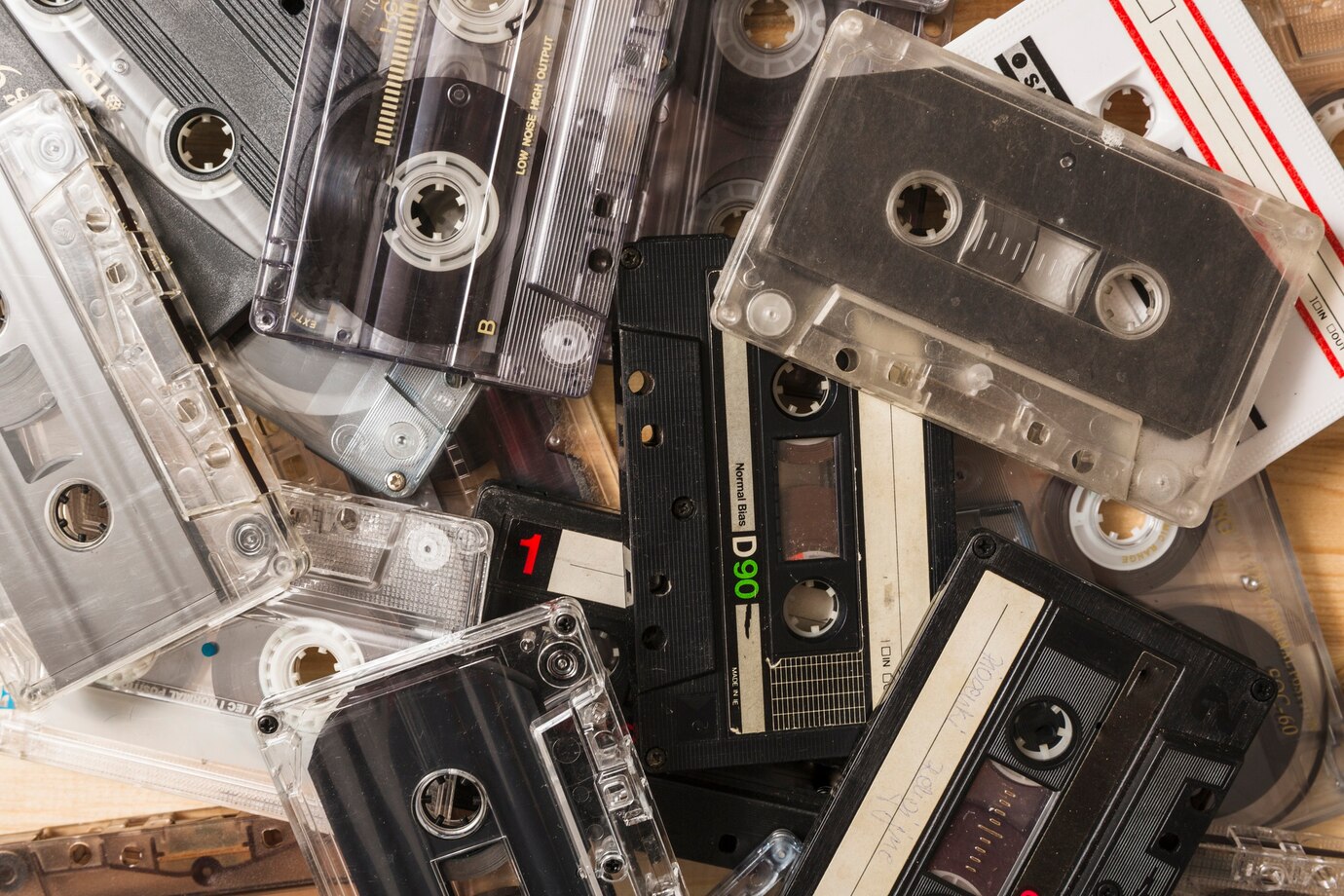
Contents
Introduction to EPs
EP vs. Single vs. Album: Key Differences
Historical Evolution of EPs
Why Artists Release EPs: Strategic and Creative Purposes
EPs in the Digital Age: Streaming and Industry Standards
Notable EP Examples Across Genres
Conclusion: The Enduring Relevance of EPs
Discover what an EP (Extended Play) is in music – from its origins in vinyl to modern streaming. Learn how EPs differ from albums, why artists use them, and explore iconic examples. Essential guide for musicians and fans!
1. Introduction to EPs
An EP (Extended Play) is a musical recording that sits between a single and a full-length album in terms of length and scope. Typically containing 3–6 tracks and lasting 15–30 minutes, EPs serve as a versatile format for artists to showcase their work without the commitment of an album. The term originated in the vinyl era, where it described a medium-sized record that offered more content than a single but less than a long-playing (LP) album.
EPs are often misunderstood as “shorter albums,” but their significance lies in their flexibility. They act as a creative playground for experimentation, a cost-effective tool for emerging artists, and a strategic release to maintain audience engagement between albums.
2. EP vs. Single vs. Album: Key Differences
To clarify the distinctions, here's a breakdown of the three primary music formats:

3. Historical Evolution of EPs
Vinyl Era (1950s-1980s)

EPs emerged alongside 7-inch vinyl records, which could hold 2-4 songs per side at 45 RPM. Iconic examples include The Beatles’ Long Tall Sally EP (1964), which featured covers and rare tracks.
Cassettes and CDs (1980s-2000s)

Physical media expanded EPs' utility. Bands like Nirvana used EPs (Blew, 1989) to build hype before album releases.
Digital and Streaming Era (2010s-Present)

While physical constraints vanished, the EP format persisted. Platforms like Spotify and Apple Music categorize EPs separately, but streaming’s focus on single tracks has blurred traditional definition
4. Why Artists Release EPs: Strategic and Creative Purposes
For Emerging Artists
EPs are a low-risk, high-reward tool for new musicians. For example, Billie Eilish's debut EP Don't Smile at Me (2017) propelled her to stardom with viral hits like Ocean Eyes.
Creative Experimentation
Established artists use EPs to test new sounds. Radiohead's In Rainbows - From the Basement (2008) reimagined their album tracks in stripped-down sessions
Marketing and Engagement
EPs keep fans engaged between albums. Taylor Swift's evermore (2020), labeled a “sister album” to folklore, functioned similarly to an EP by expanding a narrative without a full rollout.
Nostalgia and Collectibility
Limited-edition vinyl EPs (e.g., Mitski' Laurel Hell Outtakes) cater to collectors, leveraging physical media's resurgence.
5. EPs in the Digital Age: Streaming and Industry Standards
- ●Streaming's Impact:
- ○Algorithms prioritize singles, but EPs allow artists to group cohesive tracks (e.g., FKA twigs' M3LL155X).Platforms like Bandcamp empower indie artists to monetize EPs directly.
- ●Grammy Rules:
- ○To qualify for “Best Short Form Music Video” or “Best EP” categories, releases must adhere to strict track and duration limits, ensuring EPs remain distinct from albums.
- ●Controversies:
- ○Critics argue that some artists exploit the EP label to inflate streaming numbers (e.g., splitting albums into multiple EPs).
6. Notable EP Examples Across Genres
- Pop:Ariana Grande's Christmas & Chill (2015) - a holiday-themed EP with cult followings.
- Hip-Hop:Tyler, The Creator's Goblin (2011) - a dark, narrative-driven prelude to his albums.
- Rock:My Chemical Romance's Like Phantoms, Forever (2002) - an early release showcasing their emo roots.
- Electronic:Aphex Twin's Cheetah (2016) - a minimalist exploration of analog synths.
7. Conclusion: The Enduring Relevance of EPs
EPs remain a vital format in music, balancing artistic freedom and commercial pragmatism. For listeners, they offer bite-sized introductions to new artists; for creators, they provide a canvas for innovation. As streaming evolves, the EP’s role may shift, but its essence - condensed creativity - will endure.
Are You still Struggling to Create Music?
Maybe you have a lot of iedas about music, but suffer from a lack of professional knowledge of songwriting to turn your ideas into reality. Now, with AI Music Generator, you can turn your inspiration into a real song with the power of AI Music Generator.
